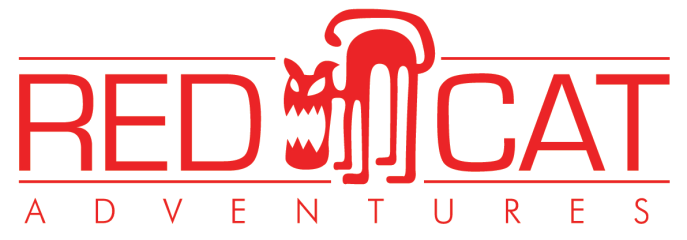Red Cat Measures Up – Benchmarking made easy.

The team at Red Cat Adventures have recently completed a benchmark analysis as part of the Whitsunday Healthy Heart Project (WHH), measuring their sustainability initiatives that directly reduce their emissions with actual data. Luckily for our other WHH partners, the team found this process a lot easier than expected.
Deb Duggan, Safety & Environmental Specialist at Red Cat, shares their benchmarking journey.
As a family-owned business and climate action leaders, Red Cat joined the WHH Project to reduce their carbon footprint for our future generations even further. Since joining the project, the team refined their existing practices to reduce their daily emissions. Deb talks us through their top two initiatives:
Waste Management
“We often have new crew who don’t know that soft plastics can be recycled. This is where education is key. Providing the correct bins is also important and creates a sense of achievement within the team that something is being done. Food waste is a major concern that we are looking at dealing with via composting.
Currently, we are collecting the soft plastics from our office and the food waste from the vessels. It has been great to get everyone in the habit of separating their waste. Now they’re all on board, we are currently recycling 500g – 1kg of soft plastics a week.
Our guests are also very open to supporting our waste management efforts and have indicated that they would like to see more in this area. Our European travellers are years ahead of us in recycling and renewable energy, and I’m finding that the newer crew are wanting to do more in this space. We also have plans to start donating money from recyclable cans and bottles to a different local charity every couple of months.”
Fuel Consumption
“The use of fuel is our major source of carbon emissions, so we have actively cracked down on our fuel consumption, especially on our largest boats, the Thundercats. We conducted an education program with the skippers on how to drive more efficiently in different conditions – instead of just going for it!”
Since making this change in the first quarter of 2022, Red Cat have realised a 10.4% reduction in fuel use for their Thundercat trips. This reduction equates to a significant 69.8kg CO2-e per day emissions reduction for each Thundercat, and substantial savings in fuel cost.
The Benchmarking Process
Members of the WHH project use the EarthCheck Portal to record their businesses consumption of items such as fuel, water and energy and their production of waste to develop a baseline emissions footprint. Deb’s initial thoughts were that the portal would be too time consuming and daunting but was surprised with how quick and easy it was to use.
“I like the layout and the steps were easily understood. Just get started if you are procrastinating! Not only does it calculate emissions, but it also highlighted areas within sustainability that we could improve on”.
Here’s a quick summary of Red Cat’s benchmarking process and findings:
- Timing: 10 – 11 hours to collate, enter & update first year of data to EarthCheck requirements.
- Easiest data to collect: Electrical, all the information is on power bills.
- Most challenging data to collect: Consistent measurement and recording of waste. “Collection of the first year of benchmark data (2019) was challenging as it occurred quite some time ago. To overcome this, we created a formula based on amount of waste per passenger that is generated on an average trip. Future collection will be simpler as we now get the crew to record waste in a logbook.”
- Most interesting finding: Gas Use. “I’ve never seen this recorded in past carbon calculators. I love the detail as it is easy to miss items that you think don’t have an impact on emissions.”
- Biggest barrier to decarbonisation: “Having the resources and passionate people to keep driving initiatives.”
The Next Steps
Setting an Emission Reductions Target.
“We will be setting an emissions reduction target. As part of becoming a Reef Check Ambassador, I completed a personal “carbon check” which provides you with the “number of earths” needed to continue living the way you do. It was easy to complete, and I was shocked at how many resources we consume to maintain our lifestyles. I have had several of the staff complete the exercise, and they are all amazed at how much of an impact they have on the planet. These insights will feed into our reductions target.”
Emissions Offset
“We do plan to offset our emissions. I know in the past we have partnered with a tree planting scheme in WA. We have also just started composting all of our food waste in a Tangarao blue black fly larvae project – all very new but also exciting, and we look forward to sharing the results of this initiative!”
